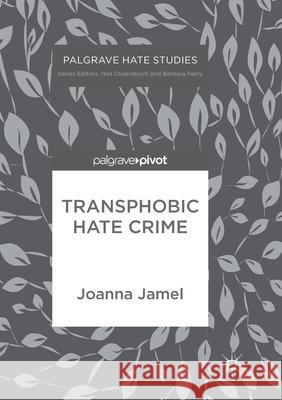Transphobic Hate Crime » książka
topmenu
Transphobic Hate Crime
ISBN-13: 9783319862736 / Angielski / Miękka / 2018 / 115 str.
Kategorie:
Kategorie BISAC:
Wydawca:
Palgrave MacMillan
Seria wydawnicza:
Język:
Angielski
ISBN-13:
9783319862736
Rok wydania:
2018
Wydanie:
Softcover Repri
Ilość stron:
115
Waga:
0.17 kg
Wymiary:
21.01 x 14.81 x 0.74
Oprawa:
Miękka
Wolumenów:
01
Dodatkowe informacje:
Wydanie ilustrowane











